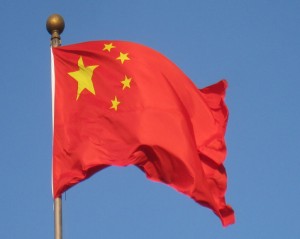IDR Blog
Is China setting up Debt Traps in Developing Countries?
In December 2019 Deborah Brautigham of John University in New York in the US wrote an interesting paper A Critical Look at Chinese Debt Trap Diplomacy: The Rise of a Meme. The paper delves into depth of the idea which US Vice President Mike Pence publicly warned the developing countries to be aware of the Chinese strategic plan of her aspiration to become a rising superpower that will write the rules to be abided by the rest of the world.
China is a rogue donor about its finances, is a new colonialist, and a predatory and pernicious lender that snares vulnerable states in a debt trap by leveraging its loans to have its way with weak victim.
Additionally, Deborah Brautigham wrote of the warning to African leaders by Hillary Clinton, then Secretary of State on a visit in 2011 to Africa to warn Africans against ‘the new colonialism’; and at the 2014 US–Africa summit, President Barack Obama’s paternalistic advice to African leaders that they ‘make sure that if China is putting in roads and bridges, that they’re hiring African workers”. This US claim that China does not employ African workers, has been proved to be unfounded by scholars such as Barry Sautman (Sautman & Yan, 2015).
Is China a Rogue Donor to the Needy Countries?
The result is a situation where for over a decade Western politicians and pundits have warned that China is a rogue donor about its finances, is a new colonialist, and a predatory and pernicious lender that snares vulnerable states in a debt trap by leveraging its loans to have its way with weak victim. It is debatable how far these warnings by the Western countries are worthwhile given the fact that the Chinese loans given to developing countries are mainly used for financing the infrastructural development of the recipient countries for which these countries have the need but not the resources. Given this background, it is difficult to ignore Western concerns about China’s intentions.
Can We Ignore the Sri Lankan Example?
In the case of Sri Lanka, it has to be noted that China Merchants Port Holdings will take charge of all commercial and administrative management operations at Hambantota Port under the $1.5 billion deal, giving it a 70 percent stake, with Sri Lanka Holding Company owning the remaining 30 percent.
Sri Lankans appear to be happy with the deal as they feel that the agreement will be beneficial for Sri Lanka’s 20 million people, injecting new vitality into the strategic cooperative partnership in various fields. It is expected that it will boost Sri Lanka’s foreign exchange reserves by encouraging Chinese investors to establish cement, iron industries, and various refineries in and around Hambantota.
South China Sea where the Chinese are fortifying islands and creating new ‘facts on the ground’ claiming large swaths of the area to be part of China.
Since 2014, India has raised repeated concerns over the deal, fearing the Chinese-built port would provide a naval advantage on its doorstep. Some Indian media even criticized the project as China’s “debt-trap diplomacy” given the debt-ridden nature of the Sri Lankan economy.
Some Sri Lankan analysts believe that the Chinese presence is important to keep the island nation free from Indian and Western influence. Most Sri Lankans believe China has no ulterior motive in the country or the region.
Western Concern about Chinese Engagements Abroad cannot be Ignored
Deborah Brautigham did mention that the West had reasons for concern about new developments in Chinese engagements overseas. An example is the South China Sea where the Chinese are fortifying islands and creating new ‘facts on the ground’ claiming large swaths of the area to be part of China. She added that the heightened concern about Chinese overseas engagements which has a concrete foundation that in July 2017 the Chinese opened their first overseas military (support) base in Djibouti, even though establishing an overseas base is something that China repeatedly said it would never do.
Djibouti occupies a strategic location on the Bab-el-Mandeb Strait that separates the Horn of Africa from Yemen and the Arabian Peninsula. The Chinese facility lies on the major Gulf of Aden–Suez Canal maritime shipping route and is located only 7 kilometers from the US special operations Camp Lemonnier used to prosecute the ‘War on Terror’.
Conclusion
In the Sri Lankan case, the debt-diplomacy meme asserts that China inveigled Sri Lanka to ‘cough up a port’. However, Indian concerns about the potential military uses of Hambantota spilled over into US government concerns about China’s port investments in the small African country of Djibouti. Senior officials in the US administration charged in December 2018 that Djibouti might incite ambitions in China that may be viewed as potentially risky.
In the case of Sri Lanka, it was proposed that in the construction of Hambantota Port China’s Exim Bank would offer billions of dollars for the running and construction of the port on the condition that the Chinese Banks would own seventy percent of the equity while the Sri Lankans would own thirty percent. Consequently, one could give credence to Western criticism that China has forced Sri Lanka to cede a part of its territory on which Sri Lanka would effectively have no sovereignty.





